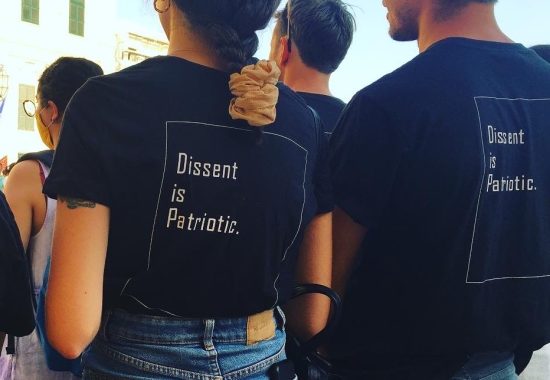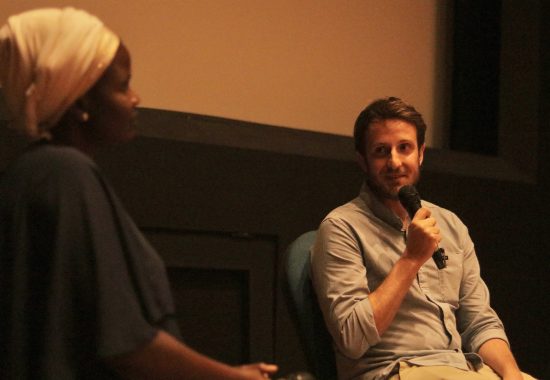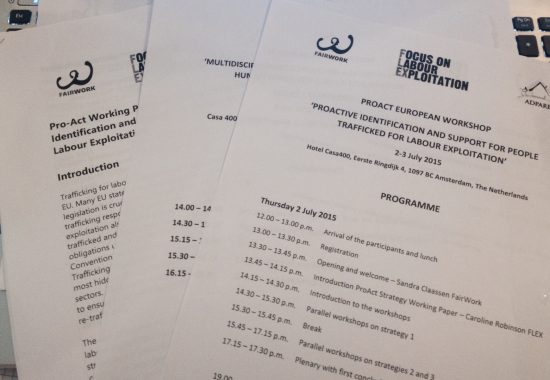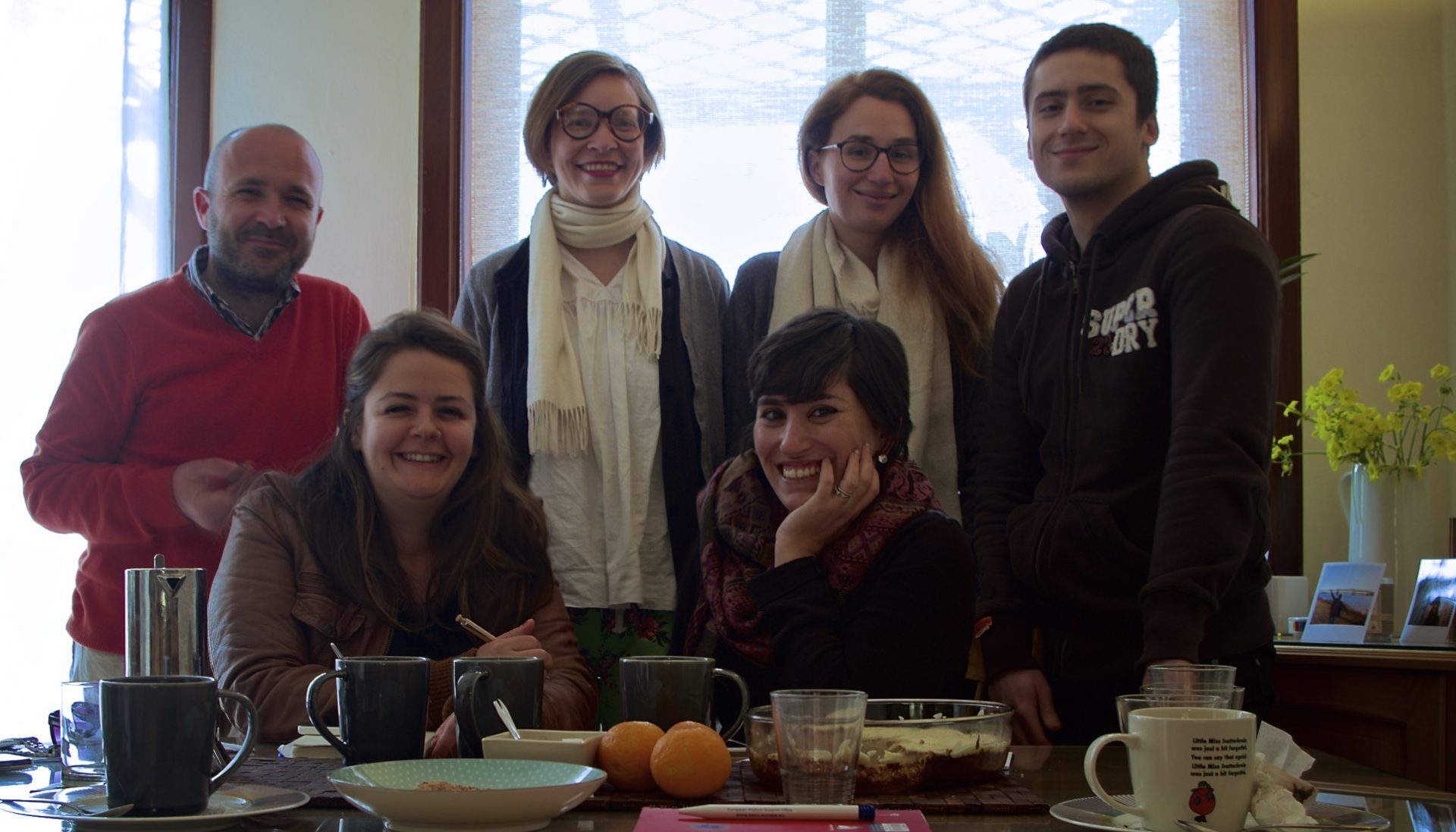Amsterdam, 2nd- 3rd July, 2015
Carla Camilleri, our Assistant Director, participated in a two day European workshop on the Proactive Identification and Support for People Trafficked for Labour Exploitation in Amsterdam. The workshop was organised by FairWork Foundation, Focus on Labour Exploitation (FLEX) and ADPARE and was attended by around 65 expert participants from 24 countries working in NGOs, government departments, trade unions, shelters and research institutes.
The workshop concluded the research phase of the Pro-Act Project which aims to develop effective strategies for pro-active identification and support for people trafficked for labour exploitation. The core strategies that were developed cover 5 main areas:
- Access to information, improved detection and remedies;
-
Access to legal counselling and redress;
-
Empowering support tailored to the needs of trafficked persons;
-
Empowering psychological assistance; and
-
Access to benefits and appropriate employment.
Over the two days, we gave our feedback on the proposed core strategies based on the knowledge and experience gained from the work we did back home. Our assessment and input will then be used by the project partners to strengthen the strategies and pilot them over a six month period in the 3 partner countries: UK, the Netherlands and Romania. We look forward to seeing the results and the experiences gained after the pilot period.
The summary of the Pro-Act research findings and core strategies can be found in more detail here: Working Paper: Pilot Strategies for Pro-Active Identification and Support to Victims of Trafficking for Labour Exploitation.
On Friday afternoon, a supplementary workshop on the Multidisciplinary Cooperation Against Trafficking in Human Being for Labour Exploitation was organised in the light of Project Teamwork which is a joint initiative of the governments of Luxembourg, the Netherlands, Malta and Slovakia in the framework of their EU presidencies 2015 – 2017. During the two hour workshop, the participants were divided into parallel working groups that discussed the main issues relating to the various actors involved in the identification and support for trafficked individuals. The role of the police, prosecutors, trade unions, NGOs and migrant communities in the identification of victims and the problems that often arise were outlined by the various participants. Furthermore, best practices on dealing with trafficking through multidisciplinary cooperation from across Europe were identified and discussed.




